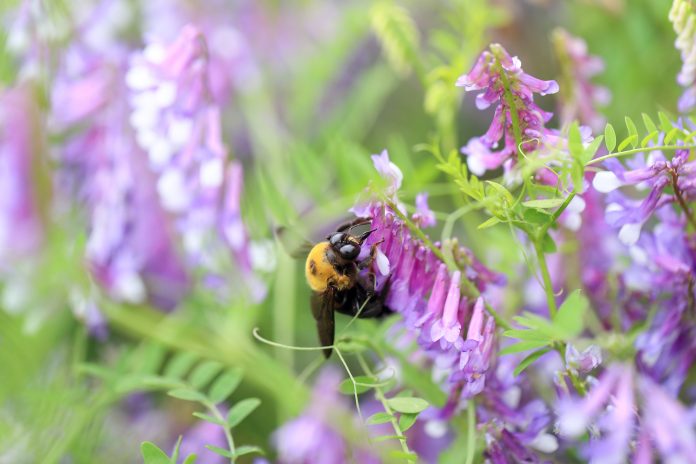York University researchers have discovered that while most bees are solitary creatures, there is a remarkable exception in the form of tiny carpenter bee species when concerning maternal care
According to new research, carpenter bees exhibit meticulous maternal care for their offspring, resulting in significant advantages for the developing bees’ microbiome, overall development and health.
Maternal care benefits for bees
This care is analogous to the beneficial influence of human mothers on their children. It protects against the excessive presence of detrimental fungi, bacteria, viruses and parasites during the initial stages of development.
Without maternal care, the developing bees experienced a substantial increase in their pathogen load. 85% of these pathogens were fungi, with an additional 8% being bacteria.
The heightened pathogen presence can harm bees’ microbiomes, critical to their health, development process, immune system function and gene expression.
This could lead to alterations in the brain, eye development, and behavioural changes. Among the identified pathogens, the most prominent was Aspergillus, a fungus a disease known to trigger stonebrood disease in honey bees, resulting in the mummification of offspring.
The absence of maternal care can lead to a diminished microbiome
In the later stages of development, the absence of maternal care can lead to a diminished microbiome, making the bees more susceptible to disease and overall compromised health.
Understanding host environments
The researchers examined the lifestyle of carpenter bees, focusing on four key development stages, beginning with the larval stage.
They conducted their observations in both the presence and absence of maternal care.
“Looking at the gene expression of these bees, you can see how the slightest dysregulation early in development cascades through their whole formation. It is all interconnected and shows how vital maternal care is in early childhood development,” says Chau.
Shows how vital maternal care is in early childhood development
This study offers metatranscriptomic insights into how maternal care influences the development of offspring, establishing a fundamental framework for monitoring the progression of the microbiome during development.
“It is a complex paper that provides layers of data and shows the power of genomics as a tool,” says Rehan. This approach allows for records and analysis of the interactions between the host and its environment.
Bee diversity
She also anticipates that this research will give people a deeper understanding of the concealed aspects of bees’ lives, highlighting their substantial distinctions and intriguing similarities.
Many people view all bees as one single entity. Still, there is an intricate diversity among bees, and once this is grasped, it is easier to understand and foster the concerns for preserving bee varieties.











